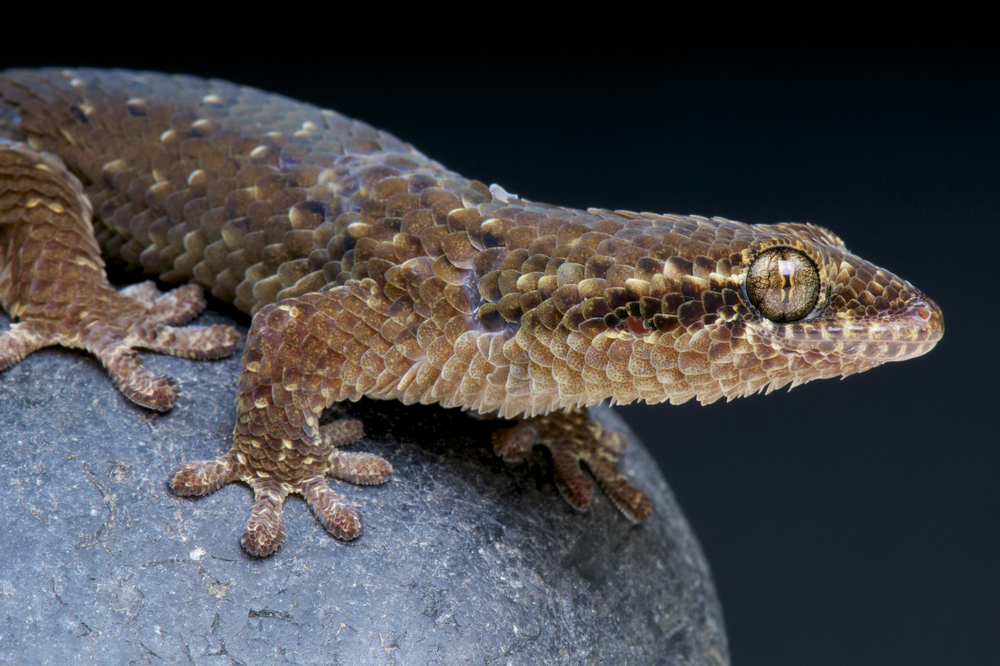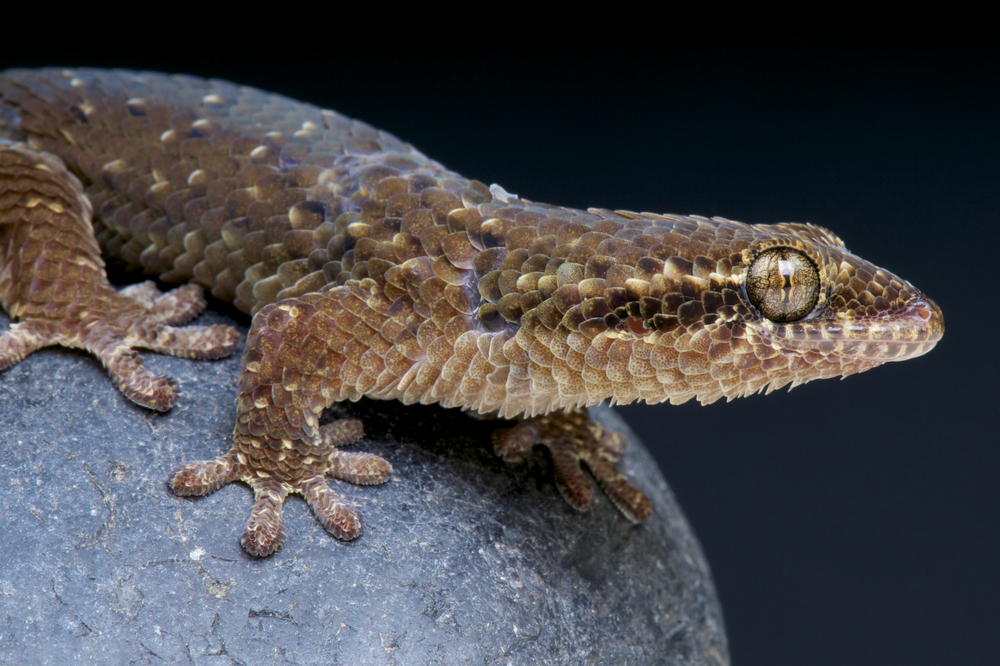Geckolepis are a unique genus of arboreal, nocturnal geckos found only in Madagascar and the Comoros Islands. Sometimes referred to as the ‘fish scale gecko’, they have the largest scales of any gecko and their iridescent hue reinforces their “fishy” look. However, their most unusual feature is their ability to completely lose parts of their skin and scales to avoid a predator. The large scales of Geckolepis are attached by a narrow piece of skin that has a subdermal ‘splitting zone’ which when grasped by a predator, leaves the attacker with a mouth full of scales and the fish scale gecko looking like a raw chicken breast.
The lizard is able to lose most of the scales on its body with no obvious adverse effect. In fact, these scales grow back in just a few weeks. The new scales are almost indistinguishable from the old ones and providing the gecko does not encounter another predator while it’s exposed, it should live to see another day (and repeat the process once again).
The name Geckolepis comes from the greek “lepis” meaning “scale” and is a direct reference to the animal’s unusual appearance. The fish scale gecko is found in a variety of habitats including close to human settlements where it will feed on flying insects attracted by artificial lights.
There are several other genera of geckos (such as Phelsuma) that can lose scales to evade predators, but this is often very costly to the animal and will leave scarring. Geckolepis are thought to shed their scales almost immediately if touched by a would-be predator. Although this bizarre defence strategy has been known to science for over 100 years, herpetologists are only just beginning to understand the diversity of Geckolepis species across northern Madagascar.

Distribution of the Fish Scaled Gecko
There are currently five species in the Geckolepis genus spanning a wide distribution across northern and eastern Madagascar. With one new Malagasy mainland species being described described in 2017, it is likely that more fish scaled geckos will be described in the future.
Fish scale geckos are not well established in captivity. Their sensitive nature and quick stress response likely made them unfavourable to exporters during the 1980s and 1990s and therefore, few are available in the hobby. However, their care could be likened to most nocturnal, arboreal geckos with similar climatic environments to a Madagascar Giant Day Gecko.
